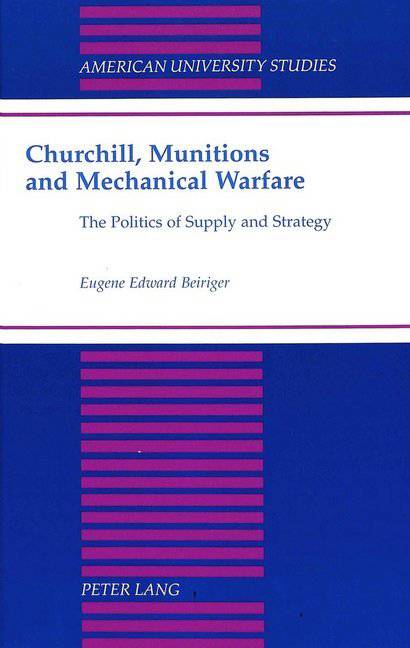
Door een staking bij bpost kan je online bestelling op dit moment iets langer onderweg zijn dan voorzien. Dringend iets nodig? Onze winkels ontvangen jou met open armen!
- Afhalen na 1 uur in een winkel met voorraad
- Gratis thuislevering in België vanaf € 30
- Ruim aanbod met 7 miljoen producten
Door een staking bij bpost kan je online bestelling op dit moment iets langer onderweg zijn dan voorzien. Dringend iets nodig? Onze winkels ontvangen jou met open armen!
- Afhalen na 1 uur in een winkel met voorraad
- Gratis thuislevering in België vanaf € 30
- Ruim aanbod met 7 miljoen producten
Zoeken
Churchill, Munitions and Mechanical Warfare
The Politics of Supply and Strategy
Eugene Edward Beiriger
€ 47,45
+ 94 punten
Omschrijving
Winston Churchill's career in the First World War is often characterized by his work at the Admiralty, by the advocacy of the tragic Dardanelles campaign, and the support of the landship, a prototype of the tank. Churchill's tenure at the Ministry of Munitions, from July 1917 to January 1919, has received little scholarly attention. This study examines the development of Churchill's strategic thought and administrative actions in the last years of the First World War. As Minister of Munitions, Churchill's greatest contribution to the war effort was his comprehensive approach to the supply and strategy of mechanical warfare, trench mortars, tanks, and airplanes. His penchant for details allowed him to offer technical and tactical appreciations that challenged traditional military thought. The Ministry of Munitions, under Churchill, became a vehicle for war direction.
Specificaties
Betrokkenen
- Auteur(s):
- Uitgeverij:
Inhoud
- Aantal bladzijden:
- 188
- Taal:
- Engels
- Reeks:
- Reeksnummer:
- nr. 183
Eigenschappen
- Productcode (EAN):
- 9780820433141
- Verschijningsdatum:
- 1/02/1998
- Uitvoering:
- Hardcover
- Formaat:
- Genaaid
- Afmetingen:
- 160 mm x 230 mm
- Gewicht:
- 439 g

Alleen bij Standaard Boekhandel
+ 94 punten op je klantenkaart van Standaard Boekhandel
Beoordelingen
We publiceren alleen reviews die voldoen aan de voorwaarden voor reviews. Bekijk onze voorwaarden voor reviews.











